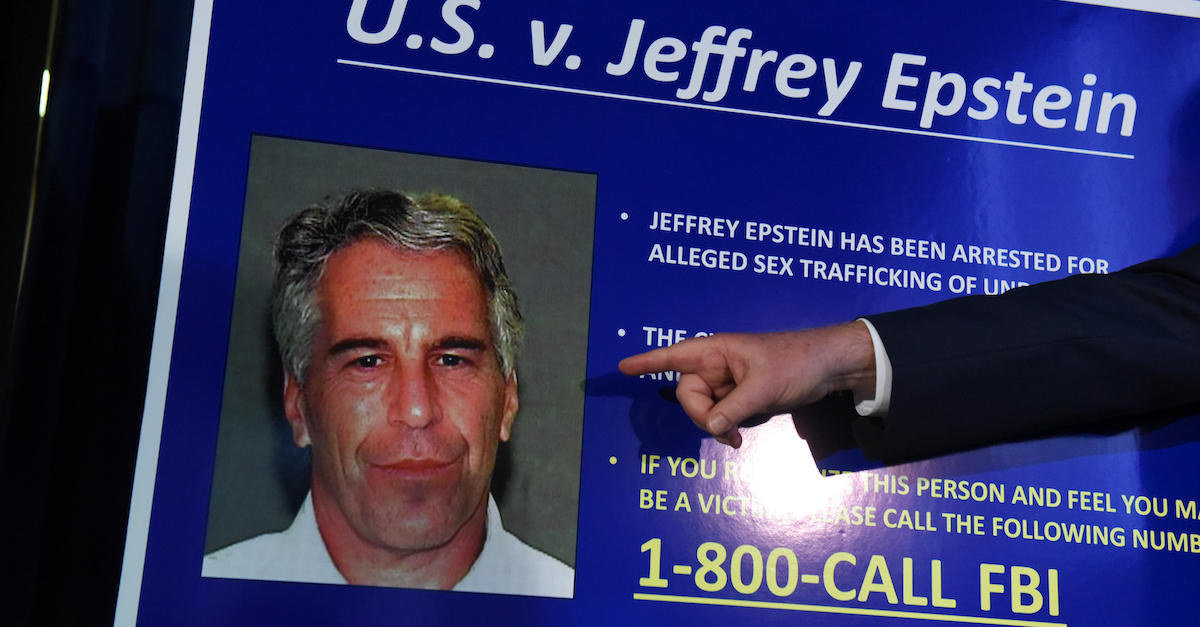
A judge in Florida on Wednesday determined that a long sought-after tranche of documents related to deceased pedophile Jeffrey Epstein will remain under lock-and-key due to a procedural issue.
Florida’s Fifteenth Judicial Circuit Chief Judge Krista Marx ruled against the Palm Beach Post in their bid to obtain the Epstein files from Palm Beach County State Attorney Dave Aronberg.
According to famed Miami Herald investigative reporter Julie K. Brown, during the hearing, the judge was “openly expressing contempt at the paper for suing” Aronberg and the Palm Beach County Clerk and Comptroller Sharon R. Bock.
Brown noted that Marx “insisted that only the court,” not Aronberg or Bock, “can release the Epstein grand jury records.”
NEW: Palm Beach Chief Judge Krista Marx made clear that the Palm Beach Post’s effort to force state attorney @aronberg & county clerk to release Jeffrey Epstein Grand Jury records is misguided — because only a judge can unseal the docs.
— julie k. brown (@jkbjournalist) June 3, 2020
Brown previously broke the modern iteration of the Epstein story–bringing the scandal to national prominence by unearthing a series of courthouse documents outlining the extent of an a exceedingly suspicious and presumably atypical agreement between the Florida U.S. Attorney’s Office and Epstein–including the fact that the alleged sex trafficker was allowed to leave the jail and work from home under a “work release” program during his unusually lenient sentence.
Last month, the Palm Beach Post notified the public of their legal crusade to “unlock the secret” of why Epstein “was accused by police of sexually assaulting nearly two dozen girls at his Palm Beach mansion” but only “indicted on only a single charge of solicitation of prostitution.”
Admitting that her paper’s legal battle was “lofty, perhaps even quixotic,” reporter Jane Musgrave maintained it was necessary to “further the interest of justice.”
The outlet’s attorneys cast the continued legal shroud on Epstein–and his alleged ring of elite pedophile friends–as possibly the opposite of justice.
“Access to the grand jury materials will allow the public to determine whether the grand jury process, and the secrecy that comes with it, was used to further justice or, instead, operated to shield Epstein and his co-conspirators from the consequences of their criminal activities,” they wrote in a legal brief.
Her somewhat novel report outlined the paper’s hopes:
The records would reveal why only one of Epstein’s young accusers was called to testify, what the 14-year-old was asked, whether her credibility was attacked and what other evidence was presented by then-State Attorney Barry Krischer’s top prosecutors.
Most importantly, it would help explain why grand jurors didn’t, as police recommended, charge Epstein with multiple child molestation crimes and instead indicted him for solicitation of prostitution, ignoring that the victim who testified was under the age of 16 and therefore couldn’t consent to having sex.
“No reasonable explanation has been provided as to why the numerous other known victims were not presented as witnesses and crime victims to the grand jury convened in July 2006,” the outlet’s attorneys continued. “Nor has any reasonable explanation been provided as to why State Attorney Krischer, who was initially eager to investigate and prosecute Epstein for his crimes, over time lost the desire to do so.”
Marx had essentially telegraphed her decision to withhold those grand jury documents.
Treasure Coast State Attorney Bruce Colton previously attempted to obtain those same records after being appointed by Florida Gov. Ron DeSantis (R) to assess whether Krischer and the sheriff’s office had been corrupted by Epstein’s powerful and well-paid legal team.
“Throughout its long history, secrecy has been an integral component of grand jury proceedings,” she wrote in January when denying Colton’s bid.
But the paper’s attorneys argued that Epstein, who allegedly killed himself in a Manhattan prison last year, has no more need for or right to secrecy.
“In a case of this magnitude and importance, where the accused is dead and so many of his crimes, as well as the identities and crimes of his co-conspirators, and the identities of the victims have already been exposed, the need for grand jury secrecy is no more,” they wrote in their briefing.
The paper’s apparently stalled out bid to unseal those records is distinct from an ongoing case in New York City where a federal judge there has been far more amenable to transparency viz. Esptein’s alleged co-conspirators.
In January, U.S. District Judge Loretta Preska ruled that certain documents with the names of non-party individuals in a previous case implicating Epstein and his crimes will be “unsealed on a rolling basis.” A somewhat limited ruling, Preska previously declined to release a more expansive set of documents related to that prior legal controversy and similarly rejected a call to unseal grand jury documents.
[image via Stephanie Keith/Getty Images]